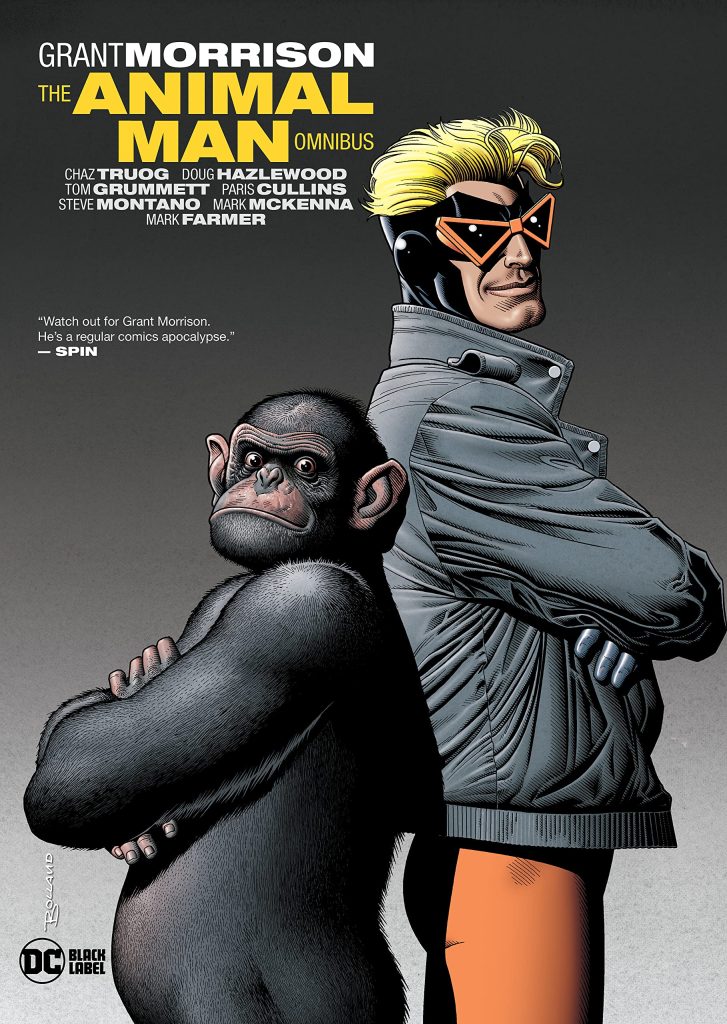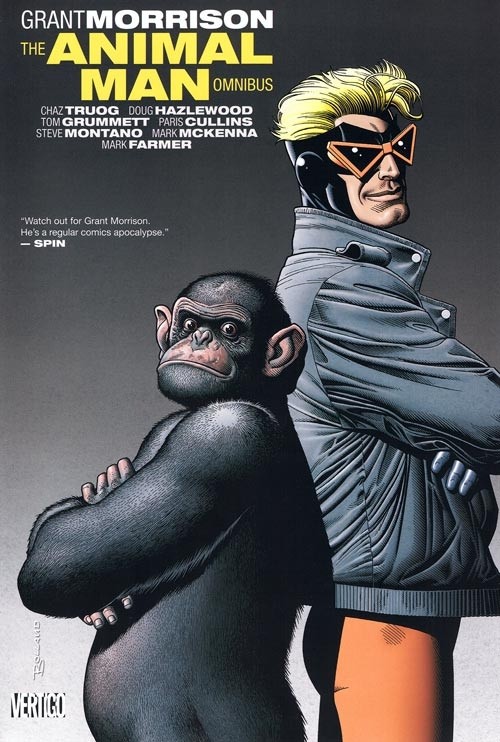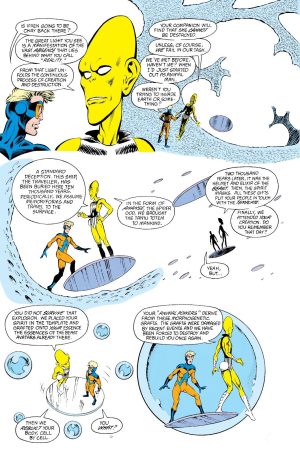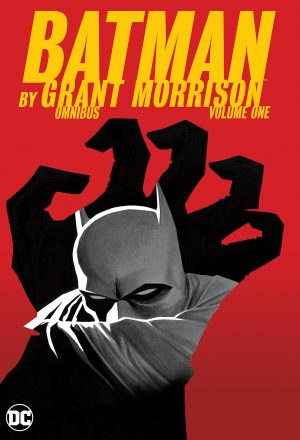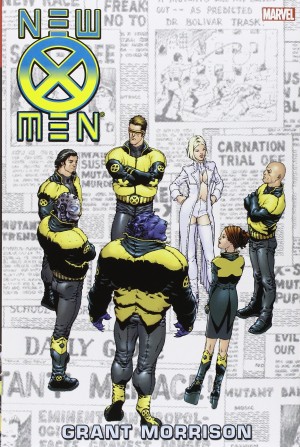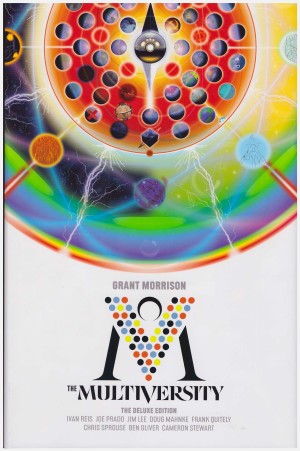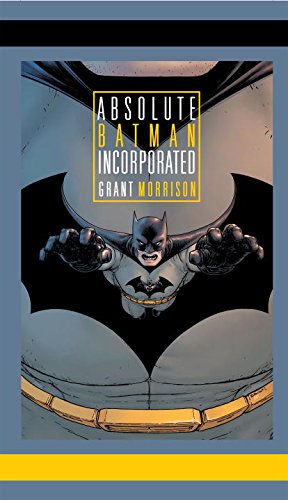Review by Frank Plowright
Grant Morrison was one of a number of British creators DC headhunted in the late 1980s in the wake of Brian Bolland, Dave Gibbons and Alan Moore’s successful transfer to US comics. Whether they anticipated quite what they were taking on with Morrison is debatable, but they should be grateful for someone’s foresight. Neil Gaiman may have proved the initial headliner, but in the years since Morrison has built a comprehensive back catalogue of genre-warping material combining intelligent imagination with commercial instinct. It began with Animal Man, his entire run collected in this Omnibus.
At the outset what was intended as a four chapter tester hasn’t aged well. The best aspects are embedding Buddy Baker in his family and a neat ending, but Morrison compromised by giving DC and readers what he thought they wanted rather than following his instincts. It’s the only mistake of any consequence he makes in what’s otherwise an enthralling series exploring layers of reality. In 1989 what did readers make of going from an ordinary superhero story reintroducing a forgotten character to the nuttiness of ‘The Coyote Gospel’? The brutality experienced by the coyote from the Warner Brothers cartoons is written as if occurring in the real world, and the background concept set the tone for the remainder of the series to explore the ‘reality’ of Animal Man.
Morrison doesn’t dive into that immediately, instead presenting some smart superhero stories making use of the wider DC universe with Animal Man either lucky or almost a bystander. The sea change begins when Morrison starts to explore how it is that Buddy can lock into the abilities of wildlife in the vicinity, which is an inventively wild journey ending with Animal Man meeting his creator. It’s witty, constantly smart, and ends up saying things about superheroes and the art of writing them that had never previously appeared in comics. Almost all the experimentation, though, takes place within the context of what are very readable superhero adventures.
However, there’s an elephant in the room. By the standards of the time Chas Truog’s art isn’t poor, although his misproportioned bodies and flat faces aren’t exemplary. That there are only two chapters of the main run of 26 drawn by other artists instantly explains his appeal to editors needing to produce a comic each month. However, from beginning to end the art is resolutely bland, telling the story with clarity, but only very rarely with any imagination, and the suspicion is that some visually impressive scenes are scripted as such. There’s no better example in comics of one creator trying to break boundaries and the other doggedly sticking to their certainties.
So the art drags down what’s otherwise a sparking exploration of possibilities and moreso than the surreal whimsy of Doom Patrol, an equally astonishing step forward written concurrently, a series that set Morrison’s path.
If buying, the 2022 DC Black Label edition is preferable to the 2013 Vertigo publication, which has a few production problems. Alternatively, the stories are still found as three original paperbacks, starting with plain Animal Man, or split over two 30th Anniversary Deluxe Edition hardcovers, the first subsequently reprinted in paperback as Animal Man by Grant Morrison Book One.
